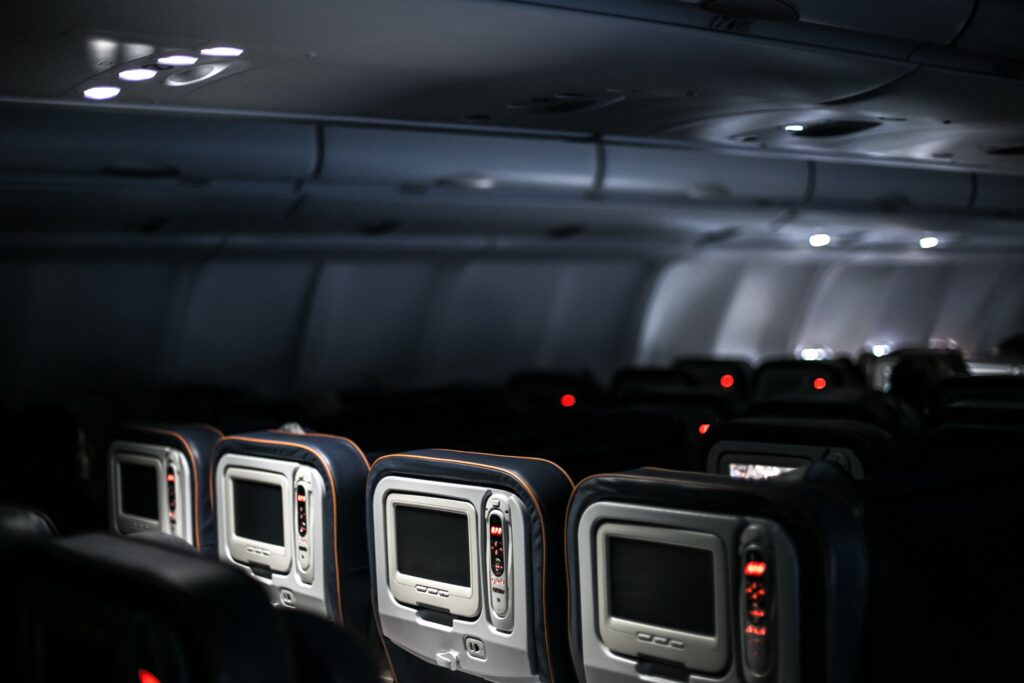The airline industry is reaching a critical breaking point - when bankruptcies are inevitable and consumers will face loss of travel vouchers, travel miles, and airline credit card benefits.
The current level of financial uncertainty in the airline industry is unprecedented.
Boeing CEO David Calhoun issued a grim warning on Monday that a major US airline could fail by the end of the year, as most airlines are currently flying at less than 10% compacity due to the COVID-19 pandemic.
In an interview with Savanna Guthrie, host of NBC’s “Today”, which aired on Tuesday, Calhoun said, “yes, most likely” in response to a question on whether a major airline could fail. He stressed that demand would be slow to recover, creating a pivotal test for airlines this fall.
Payroll assistance for airlines, provided under the federal CARES Act, will expire on September 30. Until then, airlines receiving aid, including the four largest US airlines – American, Delta, Southwest, and United – are prohibited from laying off or furloughing staff. If passengers don’t return in large numbers soon, the airline industry has announced that almost 100,000 jobs would be at risk for layoffs and furloughs at that time.
The airline industry around the world is facing an equally dire situation. Travel demand both internationally and domestic has collapsed as travel bans, shelter-in-place advisories, and corporate travel suspensions remain in effect.
“You know, something will happen when September comes around,” Calhoun said in the NBC “Today” interview. “Traffic levels will not be back to 100%. They won’t even be back to 25%. Maybe by the end of the year, we approach 50%.”
Since the COVID-19 pandemic reached the United States, it’s estimated that airlines have distributed $10 billion in travel vouchers.
Ticket holders may or may not be protected in bankruptcy proceedings for an airline company. Airlines have gone bankrupt before – but not with this level of outstanding obligations to consumers. Often companies will simply use bankruptcy as a legal tool to restructure debts or the company may be liquidated.
This is what you need to know:
Airfare refunds are NOT guaranteed
In the event of liquidation, there is no guarantee would-be passengers get directly reimbursed for the cost of their airfare. Investors who own the airline’s corporate debt would be paid back first.
Whatever is leftover, would go to unsecured creditors such as would-be passengers and their outstanding airfares. Airlines are required by the FAA to carry insurance for outstanding airfare but payouts could take months or even years to process.
Travel vouchers do NOT have a cash value
The majority of would-be passengers who pro-actively canceled flights due to the COVID-19 pandemic were issued travel vouchers or credits. Travel vouchers or credits do not have a cash value.
As a result, any travelers holding onto travel vouchers or credits who are worried about the airline going bankrupt should consider booking a trip now using their vouchers and taking out a travel insurance policy on that trip that covers bankruptcies.
Using credit-cards for protection
One strategy to protect future travel plans against an airline going bankrupt is to use a credit card for the purchase of airfare. In the event of bankruptcy, requesting a refund or chargeback from the credit card company will be the quickest method of getting your money back.
However, a refund or chargeback is not guaranteed to be processed. They are just an added layer of possible protection for your travel plans. If a large airline goes bankrupt, there will many other would-be passengers requesting refunds and chargebacks. It’s unreasonable to assume all would be processed.
To increase your chances of receiving a refund or chargeback in the event of bankruptcy, only book airfare 90 or fewer days out. Under the Fair Credit Billing Act, the consumer will only have 90 days to file a claim.
Travel insurance policies are NOT created equal
When purchasing travel insurance, make sure you read the fine print. If an airline liquidation takes place, your policy will need to cover financial default. The airline you are flying on must be listed as a covered supplier.
What happens to frequent-flyer miles?
If an airline goes into bankruptcy, holders of any special statuses and frequent flyer miles would be impacted. However, it may not be a total loss.
For airlines that survive bankruptcy by merging with another airline, special statuses and miles would likely be converted into the new airline’s program.
Airlines have started to split their loyalty programs into separate companies, which could theoretically survive a bankruptcy. The problem is, you are in a loyalty program for a now-bankrupt company.
Most airlines now have some form of “status match” programs to attract loyal frequent-flyer members from other airlines. You can use a status match program to gain equivalent status with surviving airlines.
Make sure you are signed up for my travel alerts to be notified of any airline bankruptcies.
Unfortunately, rewards gained from loyalty programs are not considered property and can be eliminated by the airline at their discretion. It’s important to stay up to date on the financial status of your airline to make a quick exit from their loyalty program.
With all this being said, now may be a good time to start redeeming or converting frequent-flyer miles you have accumulated.
Airline credit cards must be paid off
If you have signed up for a co-branded credit card from airlines to get the attractive perks and travel rewards, you will still have to pay off any credit card balances if the airline goes bankrupt.
Delinquencies on co-branded credit cards from retail companies have spiked in the past when they filed for bankruptcy. The theory is that some customers felt they no longer owed a bankrupt company. However, all credit card debt still owed will have to be repaid.
Preventing airlines from going bankrupt
The COVID-19 pandemic has caused irreversible damage to the airline industry. To prevent airlines from going bankrupt, it will take coordinated government and industry action now – or catastrophic bankruptcies will start to roll in.
For many airlines, they are already technically bankrupt or in serious breach of existing debt covenants. As fleets are grounded, cash reserves will dwindle.
The evolving threat to the airline industry is national self-interest over global cooperation. This is unfortunate due to how crucial the industry is to global communications and trade.
While governments scramble to grasp the health challenges facing their country, they are letting their most crucial industries fall by the wayside.
The future of the airline industry and travel in general
The airline industry and travel, in general, will look much different going into the last half of 2020 and into 2021. I will keep you updated on all the changes. Join my email list to be alerted to future posts.
In the meantime, I plan to do my part, with travel plans for Southeast Asia, the Middle East, and domestic destinations over the summer and fall months of 2020.








